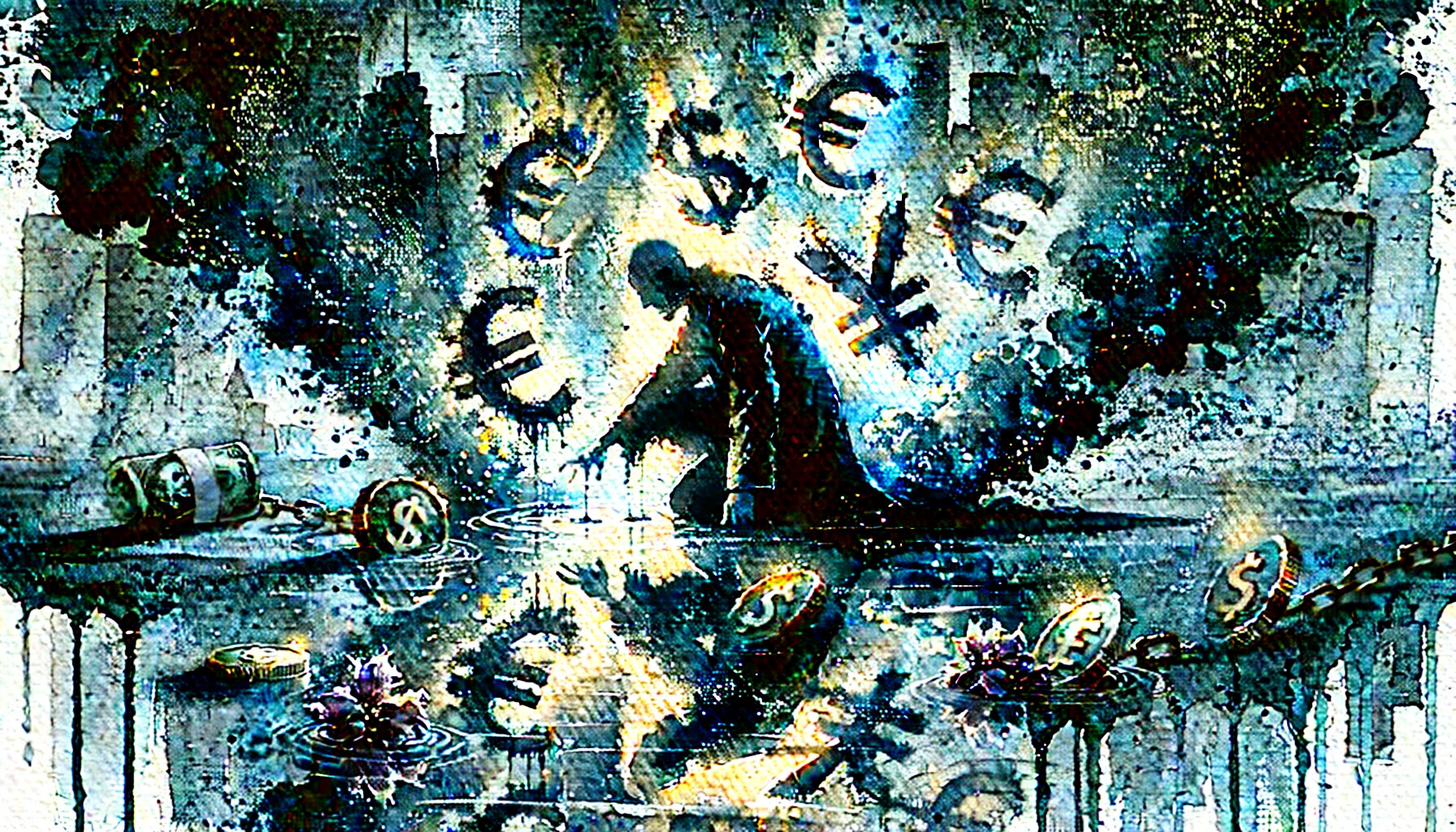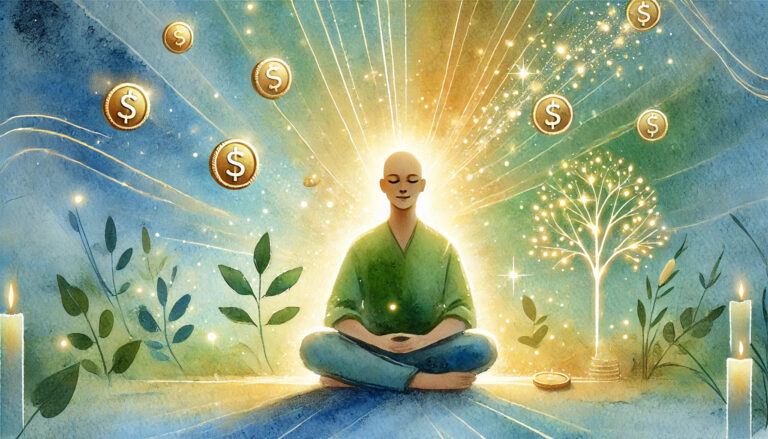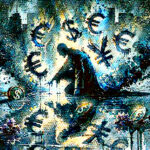Why does money have the power to break relationships, fuel obsession, and define our self-worth far beyond its role as a means of survival?
Money is more than paper, coins, or numbers on a screen. It holds immense psychological weight, influencing the way we think, feel, and act. The dark psychology of money refers to the hidden and often destructive ways money shapes our emotions, decisions, and interactions with others. It’s the unspoken force behind greed, manipulation, anxiety, and even shame.
In this blog, we’ll dive deep into the emotional traps and subconscious patterns that money creates in our lives. You’ll discover how money silently dictates power dynamics, corrodes relationships, and triggers feelings of guilt or superiority sometimes without us even realizing it. By the end, you’ll gain clarity on how to recognize and reclaim control over your personal relationship with money.
Table of Contents
1. Money as Power: The Hidden Need for Control
From ancient civilizations to modern capitalism, money has always been synonymous with power, prestige, and autonomy. It grants access, influence, and, in many cases, the illusion of invincibility. But when money becomes a symbol of control rather than a tool, the dark psychology of money begins to shape behavior in darker ways.
Power Plays and Psychological Control
People often use money not just to meet needs but to assert dominance. In personal relationships, one partner may control finances to dictate decisions, limit freedom, or maintain psychological leverage. Financial abuse though rarely talked about is a potent example of how money becomes a weapon of control.
The Scarcity Mentality and Competitive Drive
In environments where money is equated with self-worth, a scarcity mindset can take over. This is the belief that there’s “not enough” to go around, leading to hoarding, hyper-competition, or unethical choices. People begin to compete for money like it’s survival, sidelining compassion, ethics, and long-term thinking.
Real-World Examples
- A parent uses financial support as leverage over adult children, influencing their life choices or careers.
- A wealthy partner threatens to cut off access to shared assets during conflict, turning love into control.
- Business leaders prioritize profit over ethics, exploiting labor or the environment to stay “on top.”
When money is tied to identity and power, it becomes more than a means it becomes a measure of dominance, often at the cost of integrity, connection, and peace of mind.
2. Emotional Traps: When Money Becomes a Mental Cage
For some, money is freedom. For others, it’s a prison with golden bars. While wealth can offer comfort and security, it also has the power to trap the mind in cycles of obsession, fear, and emotional isolation.

Addicted to the Chase
The pursuit of money can become addictive. Whether it’s compulsive saving, excessive spending, or a relentless drive to earn more, some people find themselves emotionally tethered to money. This addiction mimics other forms of dependency bringing short-term highs followed by anxiety, guilt, or emptiness. This is a core example of the dark psychology of money, where financial obsession leads to emotional and psychological traps.
A high-performing executive works 80-hour weeks chasing bonuses, yet feels miserable and disconnected from family. The rush of achievement fades quickly, but the need to keep earning never stops.
The Loneliness of Wealth
Research shows that even being reminded of money can make people more socially distant and less empathetic. Wealth, especially when it isolates someone from the struggles of others, can create a bubble of detachment. Friends may seem envious, relationships feel transactional, and trust becomes scarce.
Shame, Guilt, and Worth
When financial success becomes tied to self-esteem, it breeds emotional volatility. People who inherit money may feel guilt or imposter syndrome as if they didn’t “deserve” it. On the flip side, those who experience financial loss often internalize shame and failure, questioning their own value.
“I failed at my business, so I must be a failure.” That’s the silent lie money can whisper to the mind.
3. Love, Trust, and Tension: How Money Shapes Relationships
Money doesn’t just affect individuals it seeps into the heart of our relationships, influencing trust, power, and emotional security.
Romantic Power Plays
In romantic partnerships, money can tip the balance of power. One partner earning significantly more may unintentionally or deliberately wield that as control. If financial decisions aren’t openly discussed, resentment brews under the surface.
A stay-at-home partner feels judged for “not contributing,” while the other silently carries financial stress both avoiding the money talk until it erupts in conflict, revealing how the dark psychology of money can quietly undermine trust and emotional connection in relationships.
Inherited Beliefs and Financial Blueprints
Our childhood experiences with money silently write the scripts we follow in adulthood. Were your parents savers or spenders? Did they fight over money or never speak of it at all? These early lessons shape our comfort with budgeting, our spending habits, and even how we define “enough.”
Family Feuds Over Fortune
Inheritance, loans, and status-related expectations often tear families apart. Siblings may resent one another for unequal distributions. Parents may attach emotional strings to financial support. In many cases, money becomes the battlefield for unresolved emotional wounds, reflecting the dark psychology of money, where financial issues transcend material value and fuel deeper emotional conflicts.
4. Society, Greed, and the Performance of Wealth
In a world where luxury cars and branded lifestyles flood our feeds, money isn’t just currency it’s performance. But beneath this shiny veneer lies a deeper, darker truth: greed is often just fear in disguise.
Greed as Fear in Disguise
The compulsive desire for more more money, more success, more stuff often stems from deep-rooted fears: fear of inadequacy, fear of poverty, fear of being left behind. The dark psychology of money reveals that greed isn’t always about excess it’s sometimes a desperate attempt to feel safe, seen, or superior.
Performative Wealth and Status Symbols
Luxury is no longer just about comfort, it’s a loud announcement of success. The pressure to “look wealthy” fuels performative behavior: flaunting high-end purchases, chasing trends, and comparing lifestyles. But behind the curated Instagram stories, many are drowning in debt, anxiety, and self-doubt.
Materialism and Identity
Over time, what we own becomes who we think we are. A designer handbag replaces self-worth. A sports car masks feelings of inadequacy. This overidentification with material things leads to a fragile sense of identity one that shatters easily when money disappears.
5. The Shadow Side: Our Unconscious Relationship with Money
The Swiss psychologist Carl Jung described the “shadow” as the part of the psyche that contains our hidden fears, desires, and shame. When it comes to money, this shadow runs deep.

The Shadow of Money
Most people aren’t aware of their unconscious money beliefs. We act them out without question: “I must earn to prove my worth,” or “We don’t talk about money, it’s rude.” These buried beliefs can control our lives, revealing the dark psychology of money, until we bring them to light.
Tying Self-Worth to Net Worth
When we internalize the idea that success equals money, we unconsciously make our bank balance a mirror of our identity. A promotion boosts the ego; a layoff destroys it. This dangerous equation makes us vulnerable to emotional volatility.
The Cultural Silence Around Money
Money is often taboo especially in families, friendships, and even marriages. This silence fosters shame, misunderstanding, and secrecy. When we can’t talk about it, we can’t heal from it.
6. Escaping the Spiral: Healing Our Relationship with Money
The dark psychology of money doesn’t have to define us. With awareness and intention, we can break free from its emotional grip and start rewriting our money story.
Practice Financial Mindfulness
Pay attention to your financial triggers. Do you spend when you’re anxious? Avoid checking your account out of shame? Awareness is the first step. Journaling, breathwork, and mindful budgeting can help bring clarity to chaotic money habits.
Talk About It Especially in Relationships
Start having open, honest conversations about money with your partner, family, or close friends. Transparency builds trust, reduces stress, and fosters emotional intimacy around a topic that often divides.
Seek Support When Needed
Money wounds run deep and they’re valid. If your relationship with money feels toxic, understanding the dark psychology of money can be the first step toward healing. Reach out to a financial therapist, coach, or counselor. Emotional healing and financial literacy can (and should) go hand in hand.
Reframe Money’s Role
Ultimately, money is a tool not a reflection of your value. It’s meant to serve your goals, not define your identity. The moment we stop chasing money as a symbol of worth, we start using it as a means of true freedom.
Conclusion
The dark psychology of money reveals a truth we often ignore: our financial lives are as much emotional as they are logical. From greed and guilt to control and comparison, money shapes how we think, feel, and connect with others often in unconscious ways.
But by shining a light on these patterns, we regain control. We free ourselves from compulsions, break toxic cycles, and start building a relationship with money rooted in awareness, purpose, and emotional clarity.
Now it’s your turn:
What hidden beliefs do you hold about money?
And how might your life change if you redefined your relationship with it?
FAQ
1. What exactly does “dark psychology of money” mean?
The term refers to the hidden, often unconscious emotional and psychological forces that influence how we think about, relate to, and use money. It includes behaviors like greed, control, guilt, obsession, and how these patterns affect our decisions, relationships, and self-worth.
2. Can money really affect mental health and emotional wellbeing?
Yes, money can be a major source of anxiety, stress, shame, or even obsession. Research shows that financial stress can lead to depression, social isolation, and strained relationships. Understanding the emotional side of money is key to healing these effects.
3. How does money create power imbalances in relationships?
When one person controls or contributes more financially, it can shift the balance of decision-making, independence, and respect in the relationship. Without open communication, these dynamics can lead to mistrust, resentment, or manipulation.
4. Why do people tie their self-worth to money?
Society often measures success by income, possessions, or status which can lead people to internalize the idea that their value as a person is directly tied to their financial achievements. This mindset can create deep emotional pressure and chronic dissatisfaction.
5. What steps can I take to develop a healthier relationship with money?
Start by becoming aware of your emotional triggers around money like fear, guilt, or compulsive spending. Practice mindfulness, have honest conversations about finances, and consider working with a therapist or coach if needed. Most importantly, remind yourself that money is a tool not your identity.








